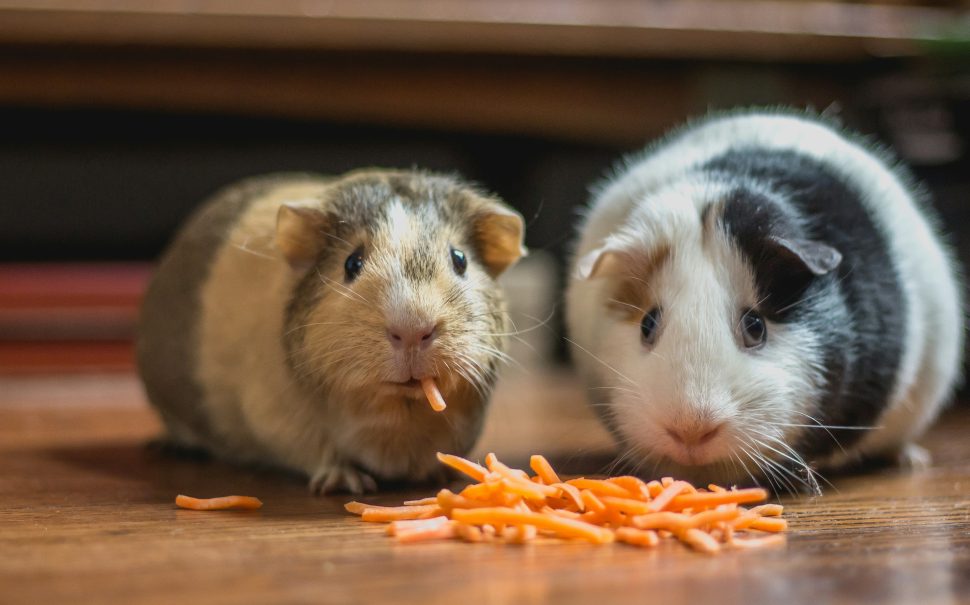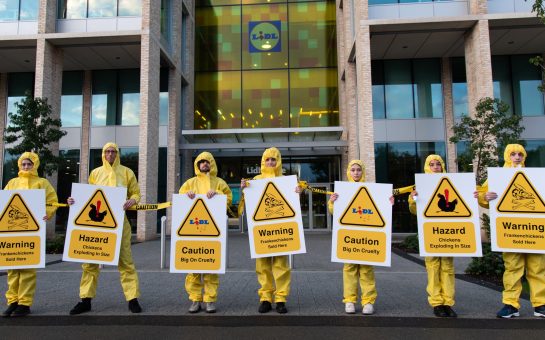The University of Manchester conducted research and testing on more than 100,000 animals last year, new figures show.
A freedom of information request submitted to the university shows a total of 109,435 animals were used in experiments in 2023 – a seven-year high in the number of animals subjected to testing by the university.
In 2017, the figure was 104,863, before dropping below 100,000 in the subsequent years until 2023.
The lowest number over the last seven years came in 2018, when 86,956 animals were used for research.
This testing on animals has come under criticism from animal rights organisations.
Dr Julia Baines, the Senior Science Policy Manager at PETA (People for the Ethical Treatment of Animals), said: “The University of Manchester should be ashamed for tormenting living, feeling beings in experiments and, in many cases, killing them.
“These shocking figures fail to disclose the number of painful and terrifying procedures inflicted on each animal or how many animals remain, scared and suffering, in cages at the institution.
“Forward-thinking scientists and institutions have switched to state-of-the-art non-animal methods, such as human organ-on-a-chip or high-speed technology, that actually produce results relevant to humans – and more quickly.
“The university must urgently embrace these methods.”
The University of Manchester uses animals as part of its research into a wide spectrum of disease, including cancer, cardiology and dementia.
In 2023, they tested on mice, rats, gerbils, guinea pigs, sheep, amphibia and fish as part of this experimentation.
According to the data, 66,920 mice were used in scientific experimentation by the University of Manchester directly.
However, the university separates the mice in its own research from the testing it conducts on the small rodents in partnership with Cancer Research UK, which means there were an additional 13,110 mice used in tests.
With these figures combined, a total of 80,030 mice were used in experiments, which represents nearly three quarters of all animal tests (73.2%).
After mice, fish were the animal with the second-highest number of experiments, with 24,587 used for research purposes, comprising 22.5% of tests.
Following fish were amphibia (2,492) and rats (2,214), which represents 2.3% and 2.0% of animals involved in experimentation respectively.
There were also 60 sheep, 40 guinea pigs and 12 gerbils used for research by the university in 2023.
A spokesperson from the organisation Animal Aid said: “The alarming rise in animal research at the University of Manchester is extremely concerning.
“Not only are animal experiments extremely cruel, but they are also unreliable, outdated science.
“Subjecting sentient beings to a painful, distressing, and short life for a box-ticking exercise and ineffective research is simply unacceptable.
“We hope the university will re-evaluate its reliance on animal research and commit to phasing out animal experimentation altogether.”
Neither the University of Salford nor the University of Bolton conducts tests on animals, and Manchester Metropolitan University also does not directly take part in research which carries out experimentation on animals – although it does work with other institutions on research involving animals, the documentation for which resides with these universities and not with Manchester Metropolitan University.
As a result, the vast majority of higher education experimentation is carried out by the University of Manchester.
A spokesperson from the University of Manchester said: “Scientific research involving animals is a vital tool in improving our understanding of health and disease and is crucial for the development of new medicines and medical technologies.
“At The University of Manchester, we employ the highest ethical and welfare standards, in accordance with the law, in terms of all of our work with animals.
“If alternatives to animal research are available and have been validated by regulators then it is illegal to use animals in a research study.
“The University of Manchester is fully committed to openness and transparency and facts, figures, project summaries and case studies are available on our website.”
Feature image credit: Bonnie Kittle.





Join the discussion
Manchester University must keep pace with scientific innovation by developing a strategy to end its reliance on animals. PETA’s Research Modernisation Deal provides the key elements required for developing a strategy to end animal experimentation and accelerate the uptake of advanced technologies that perform better than animal-based methods.
“These shocking figures fail to disclose the number of painful and terrifying procedures inflicted on each animal or how many animals remain, scared and suffering, in cages at the institution” The Uni does make this info available though, by publishing all experiments on its website https://www.manchester.ac.uk/research/environment/animal-research/procedures/ The number of scared animals is easy to calculate because it’s zero – an unhappy animal would get them shut down by the Home Office in the blink of an eye. Suffering animals would also be extremely rare. It’s worth noting that animal rights types have always said no medicine would come from animal experiments, and have always been wrong (and thus highly unethical).